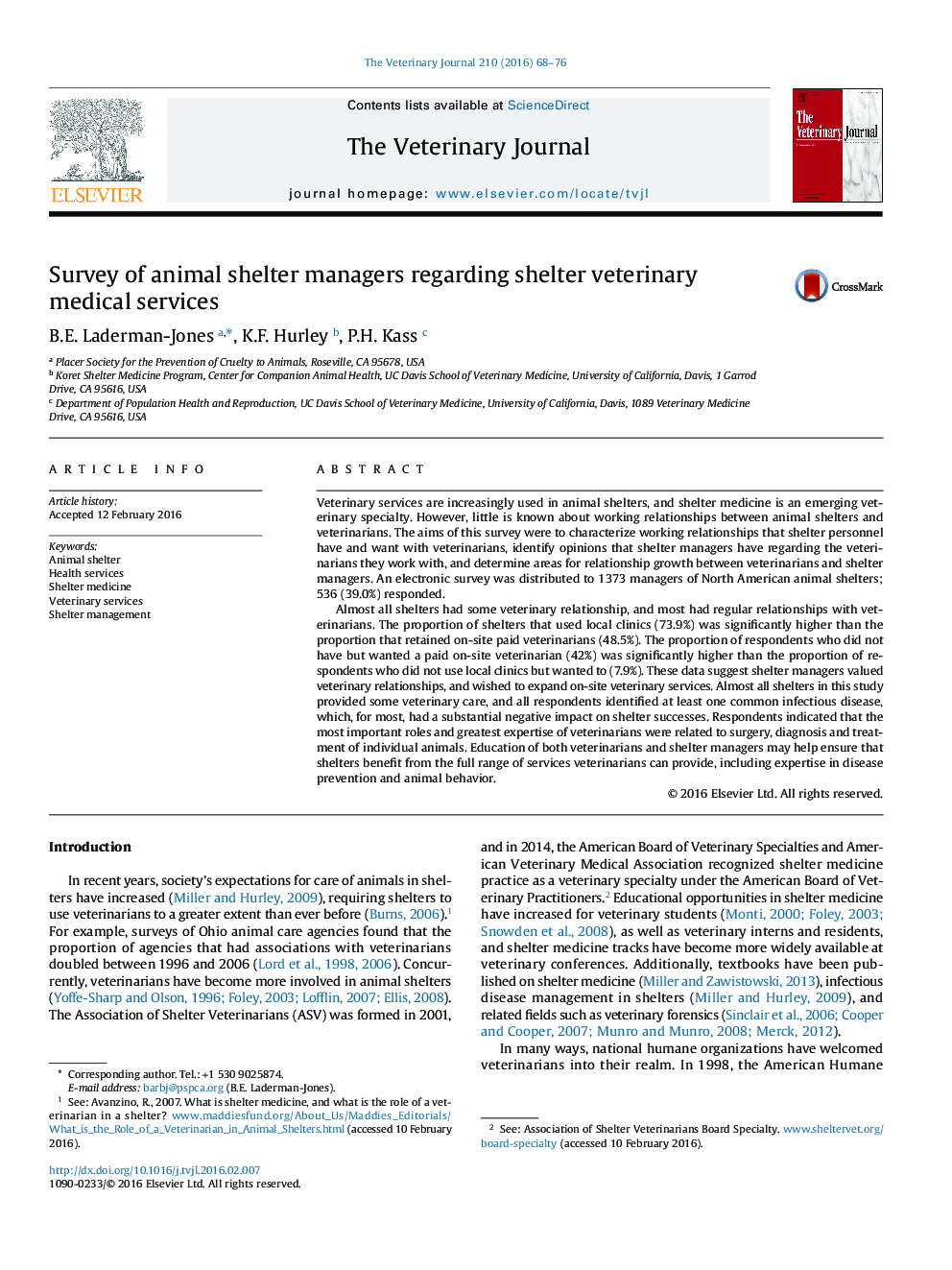| Article ID | Journal | Published Year | Pages | File Type |
|---|---|---|---|---|
| 2463731 | The Veterinary Journal | 2016 | 9 Pages |
•Use of veterinarians for care of shelter animals was widespread.•Most respondents were satisfied with shelter veterinary services received.•Shelter managers indicated interest in expanding paid on-site shelter veterinary services.•Provision of surgical and medical care for individual pets was prioritized.•Of available choices, veterinary expertise in disease prevention and behavior was given lower priority.
Veterinary services are increasingly used in animal shelters, and shelter medicine is an emerging veterinary specialty. However, little is known about working relationships between animal shelters and veterinarians. The aims of this survey were to characterize working relationships that shelter personnel have and want with veterinarians, identify opinions that shelter managers have regarding the veterinarians they work with, and determine areas for relationship growth between veterinarians and shelter managers. An electronic survey was distributed to 1373 managers of North American animal shelters; 536 (39.0%) responded.Almost all shelters had some veterinary relationship, and most had regular relationships with veterinarians. The proportion of shelters that used local clinics (73.9%) was significantly higher than the proportion that retained on-site paid veterinarians (48.5%). The proportion of respondents who did not have but wanted a paid on-site veterinarian (42%) was significantly higher than the proportion of respondents who did not use local clinics but wanted to (7.9%). These data suggest shelter managers valued veterinary relationships, and wished to expand on-site veterinary services. Almost all shelters in this study provided some veterinary care, and all respondents identified at least one common infectious disease, which, for most, had a substantial negative impact on shelter successes. Respondents indicated that the most important roles and greatest expertise of veterinarians were related to surgery, diagnosis and treatment of individual animals. Education of both veterinarians and shelter managers may help ensure that shelters benefit from the full range of services veterinarians can provide, including expertise in disease prevention and animal behavior.
